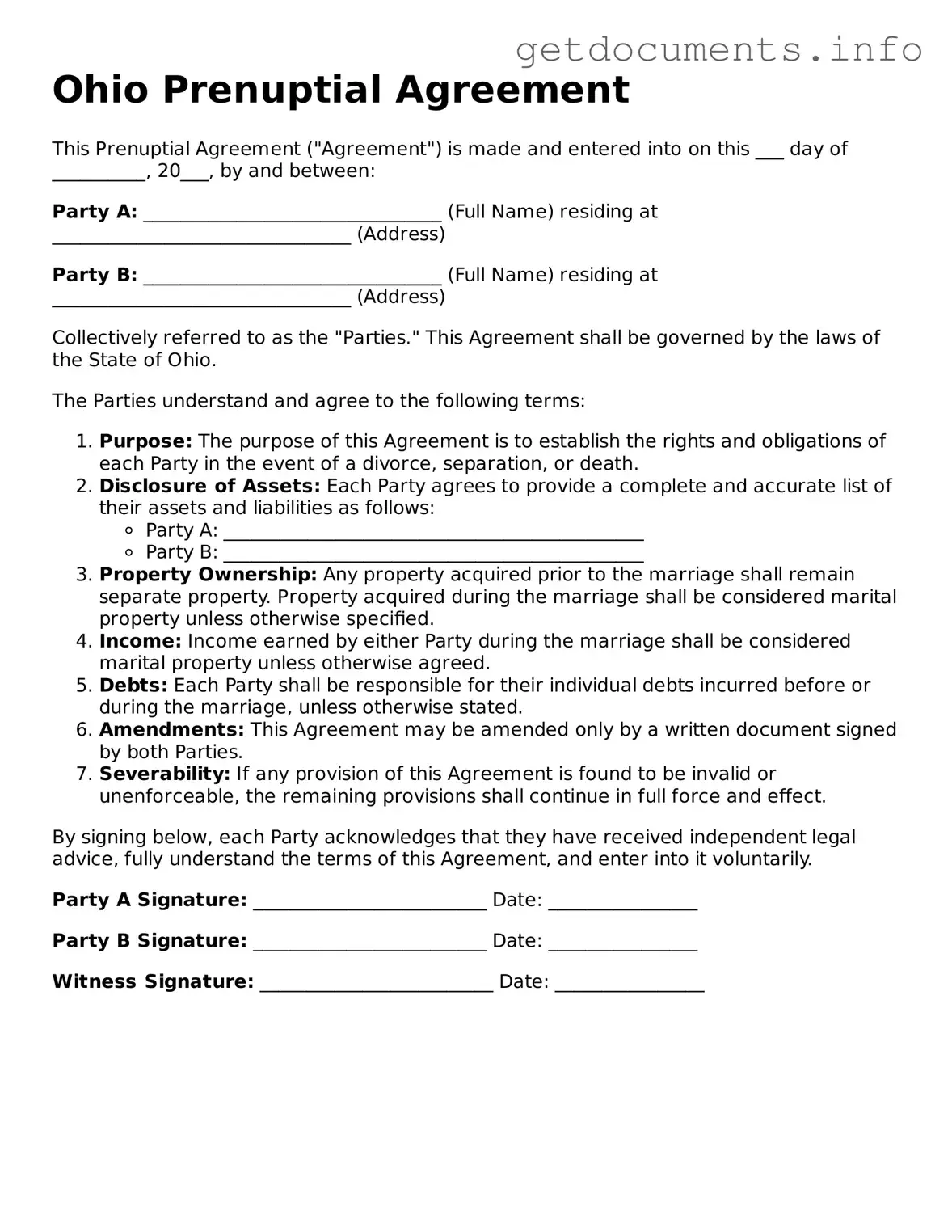Free Prenuptial Agreement Template for Ohio
A Prenuptial Agreement is a legal document that outlines how a couple's assets will be divided in the event of a divorce or separation. In Ohio, this agreement helps protect individual interests and can provide clarity and peace of mind for both partners. If you're considering a prenuptial agreement, take the first step by filling out the form below.
Access Prenuptial Agreement Editor

Free Prenuptial Agreement Template for Ohio
Access Prenuptial Agreement Editor
Got places to be? Complete the form fast
Fill out Prenuptial Agreement online and avoid printing or scanning.
Access Prenuptial Agreement Editor
or
⇩ PDF File
